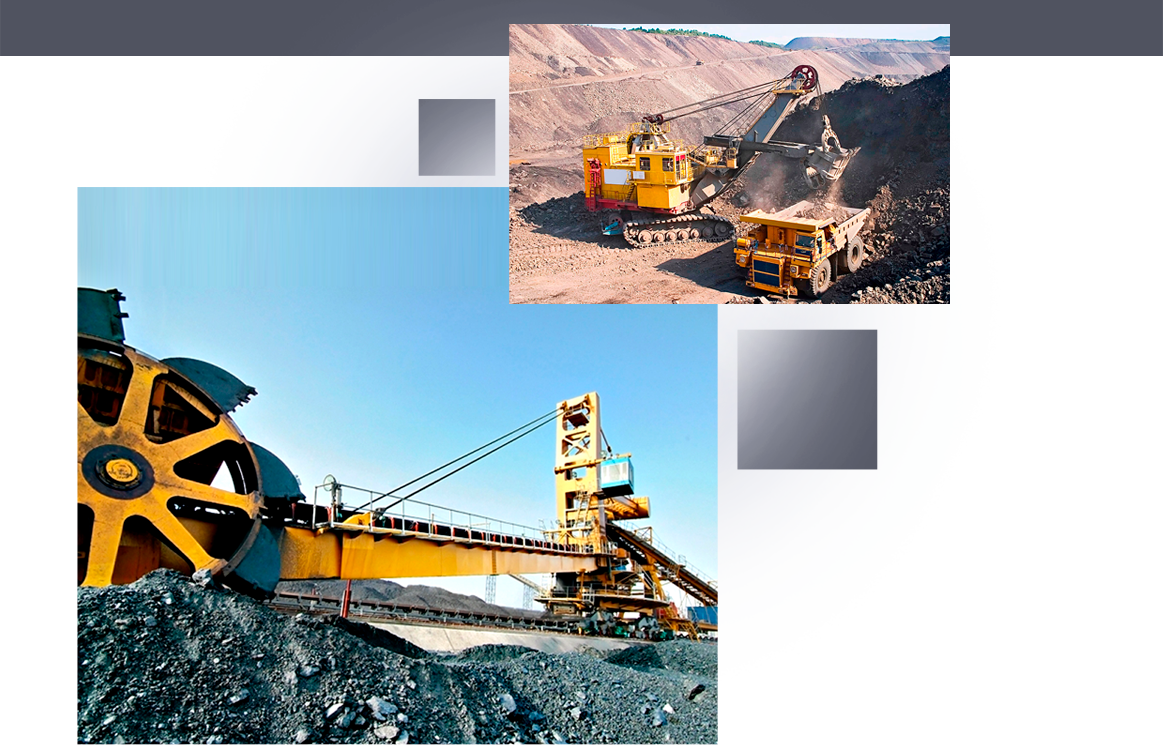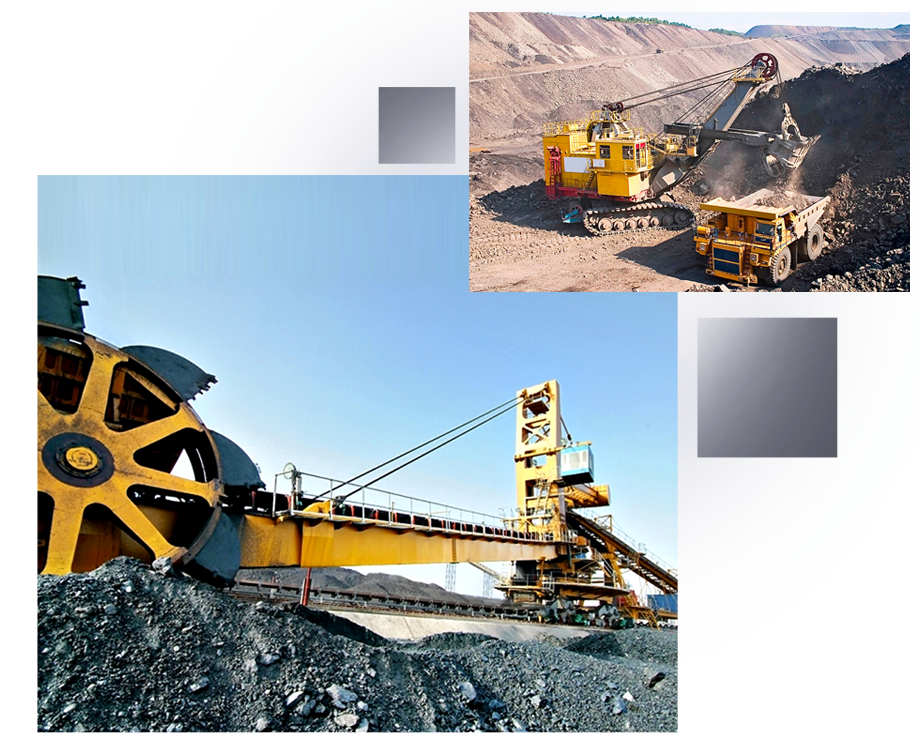Areas of
expertise
MINING LAW
National service
Our office has over nine years of experience in handling cases involving Mining Law, both in advisory and litigation matters.
Our work is based on providing comprehensive assistance for all demands related to the activities of companies operating in the mining sector, including corporate planning, compliance, strategic litigation, and monitoring of judicial and administrative proceedings in the areas of Mining Law, Environmental Law, Contracts, Real Estate Law, Agricultural Law, and Administrative Law.

Areas of
expertise
MINING
LAW
Our office has over nine years of experience in handling cases involving Mining Law, both in advisory and litigation matters.
Our work is based on providing comprehensive assistance for all demands related to the activities of companies operating in the mining sector, including corporate planning, compliance, strategic litigation, and monitoring of judicial and administrative proceedings in the areas of Mining Law, Environmental Law, Contracts, Real Estate Law, Agricultural Law, and Administrative Law.

Main
Frequently
Asked Questions
Have you been charged by the National Mining Agency?
The National Mining Agency (ANM) is responsible not only for granting mining titles but also for supervising mining activities throughout the national territory.
In cases of irregularities in mining exploration or extraction activities, as well as situations such as the administrative process before the ANM, failure to pay the annual per-hectare fee, failure to submit the final research report, as well as various other deadlines, can result in charges against the miner, with penalties ranging from a small fine to the loss of the mining title.
It is of paramount importance that a technical defense be submitted administratively within the specified deadline to avoid administrative sanctions, as well as, in some cases, civil repercussions – demanded through Public Civil Action – and criminal repercussions.
Are you a defendant in a Public Civil Action?
Public Civil Actions aim to protect collective assets, including those owned by the Federal Government, such as the environment, public assets, and urban order. In the mining sector, Public Civil Actions are commonly filed to obtain compensation for environmental damage and the possible usurpation of public property – minerals extracted without the competent authorization of the National Mining Agency.
These actions often involve significant amounts and include precautionary measures that affect the defendant’s assets, such as asset freezing and blocking of funds. They usually arise from complaints or inspections carried out by the National Mining Agency.
Technical defense in Public Civil Actions involves both the judicial process – seeking procedural irregularities – and the administrative process before the National Mining Agency, where it is possible to challenge such acts to demonstrate the miner’s lack of responsibility for the alleged damage in the context of the Public Civil Action.
Furthermore, it is essential to conduct a technical analysis of the reports used by the plaintiff in the Public Civil Action to determine the extent of the damage to be compensated by the miner. Often, the amounts claimed are excessive and do not match the scale of the miner’s operations.
Do you hold a research permit but cannot locate the owner/occupier of the area?
The Brazilian constitutional regime for the exploitation of mineral wealth follows the tradition of major mining countries: the State has domain and control over mineral resources and allows their exploitation by private entities. Consequently, a miner may request the right to conduct research on areas where they are not the owner or occupier, obtaining priority.
In this scenario, the property rights of those who own the area’s domain are mitigated in favor of the public interest in research and exploitation of underground resources. The owner/occupier is entitled only to compensation for damages suffered and income for the occupation period, as long as the research and exploitation continue.
It is common for miners to request and obtain the right to research a particular area but subsequently fail to locate the owners/occupiers of the area covered by the research permit. In this case, it is crucial to take investigative measures to locate the owner(s)/occupier(s) of the area to enable access to the area, either through an extrajudicial agreement or through a legal action.
Do you hold a research permit and cannot reach a satisfactory agreement with the owner/occupier?
In addition to the difficulty in locating owners/occupiers of areas affected by mining titles, miners often face resistance in obtaining authorization to enter the area or disagreements in reaching a financial agreement with owners/occupiers of areas.
The terms for entering the area and conducting research activities can be established both extrajudicially and judicially, with legal analysis of the terms being relevant in both cases to avoid excessive costs and, primarily, weaknesses in the terms agreed upon.
If it is not possible to reach a reasonable agreement for extrajudicial access, it is possible to resort to the judicial process to determine the compensation and income to be paid to the owner/occupier of the area.
Despite the need for a judicial inspection in the area, it is usually possible to obtain interim judicial authorization to enter the area for research purposes, as well as to comply with the deadlines set by the National Mining Agency for compliance/extension of the deadlines specified in the respective research permit.
Are you the owner/occupier of an area subject to mining exploration or extraction activities?
Rural landowners and occupiers often become aware of the existence of mining titles on their lands, facing a series of dilemmas and uncertainties as a result of this situation.
It is crucial that the owner/occupier be assisted in obtaining security regarding the continuity of their activities on the property, as well as to obtain the best possible financial results in any negotiations with the miner for access to the area.
Similarly, in case of litigation initiated by the miner, it is the owner/occupier’s responsibility to participate in the legal action, presenting technical and legal reasons to claim the maximum compensation and income for the miner’s entry into their land for research and subsequent mining activities.
Do you have doubts about drafting agreements between the miner and the owner/occupier for mining activities?
Miners and owners/occupiers often seek extrajudicial agreements to reach a reasonable arrangement for mining activities.
Such agreements may involve fixed payments to the owner/occupier, participation based on an agreed percentage, fixed amounts based on the volume of ore extracted, as well as various other hybrid forms.
It is of paramount importance, both for the miner and the owner/occupier, to have technical and legal assistance at this time to safeguard monetary interests in the agreement, as well as its legal regularity.
In addition to technical issues related to the agreement, parties often overlook the minimum threshold set by law for royalty payments, which may lead to subsequent legal challenges.
Furthermore, some forms of remuneration for the owner/occupier, such as proportional participation based on volume or net income, often involve risks arising from activity monitoring, requiring technical assistance for the formalization of such agreements.
Do you already have mining activities underway but have doubts about tax payments and optimizing the adopted tax regime?
Mining activities involve the payment of various taxes and often allow for tax credits in various situations.
Frequently, ICMS (Value-Added Tax on Sales and Services) debits incurred in the acquisition of inputs, fuel, explosives, and machinery can be subject to subsequent tax credits, which are not always detected by miners. Analysis of this possibility by a multidisciplinary technical team is essential to maximize the results of mining activities.
Are you aware of irregularities in third-party mining titles and would like to formally challenge them?
Miners and landowners/occupiers often become aware of mining projects operating without proper authorization or, alternatively, through administrative irregularities during the administrative process before the National Mining Agency.
Such irregularities can be challenged – both administratively and judicially – which must be preceded by a comprehensive analysis of the respective administrative procedure.
The identification of irregularities may result in penalties ranging from mild sanctions, such as fines, to the suspension of activities, revocation of any mining title, and the initiation of civil and criminal proceedings against the offender.
Have you been summoned to provide information in a criminal investigation?
Non-compliance with mining regulations can lead not only to administrative penalties but also to police investigations and even criminal proceedings.
In case of summons to appear at a police station to provide clarification regarding any mining-related activity, it is essential to be accompanied by a lawyer, as the investigation precedes, investigates, and substantiates any subsequent criminal action.
In addition to all the impacts related to a potential future criminal action, the investigation conducted in the criminal sphere may also serve as the basis for a subsequent Public Civil Action, including the use of a criminal conviction as an enforcement order in the civil sphere.
Therefore, the analysis of the investigation, as well as the establishment of a clear and definitive procedural strategy, is essential to minimize damage in case of initiation of a police investigation against the miner.
Are you a miner seeking to secure your personal assets?
Mining activities involve significant investments and result in substantial financial transactions, as well as considerable risks arising from the dynamics of the activity.
It is crucial for the miner to clearly distinguish between the assets of the company operating the activity and their personal assets, seeking lawful ways to demarcate their personal assets and shield them from the risks associated with the activity.
Furthermore, family-related issues often affect the dynamics of mining companies, as the enterprise is managed by various members of the same family.
In order to clearly establish the boundaries between business and family assets, as well as the succession order in the management of the activity, the establishment of holding companies may be an interesting option for miners who value security and predictability in their activity.
It is relevant that, for the establishment of a holding company, all legal aspects – encompassing succession, tax, and business issues – be analyzed, enabling the establishment of a healthy and enduring holding company.
Main
Frequently
Asked Questions
Have you been charged by the National Mining Agency?
The National Mining Agency (ANM) is responsible not only for granting mining titles but also for supervising mining activities throughout the national territory.
In cases of irregularities in mining exploration or extraction activities, as well as situations such as the administrative process before the ANM, failure to pay the annual per-hectare fee, failure to submit the final research report, as well as various other deadlines, can result in charges against the miner, with penalties ranging from a small fine to the loss of the mining title.
It is of paramount importance that a technical defense be submitted administratively within the specified deadline to avoid administrative sanctions, as well as, in some cases, civil repercussions – demanded through Public Civil Action – and criminal repercussions.
Are you a defendant in a Public Civil Action?
Public Civil Actions aim to protect collective assets, including those owned by the Federal Government, such as the environment, public assets, and urban order. In the mining sector, Public Civil Actions are commonly filed to obtain compensation for environmental damage and the possible usurpation of public property – minerals extracted without the competent authorization of the National Mining Agency.
These actions often involve significant amounts and include precautionary measures that affect the defendant’s assets, such as asset freezing and blocking of funds. They usually arise from complaints or inspections carried out by the National Mining Agency.
Technical defense in Public Civil Actions involves both the judicial process – seeking procedural irregularities – and the administrative process before the National Mining Agency, where it is possible to challenge such acts to demonstrate the miner’s lack of responsibility for the alleged damage in the context of the Public Civil Action.
Furthermore, it is essential to conduct a technical analysis of the reports used by the plaintiff in the Public Civil Action to determine the extent of the damage to be compensated by the miner. Often, the amounts claimed are excessive and do not match the scale of the miner’s operations.
Do you hold a research permit but cannot locate the owner/occupier of the area?
The Brazilian constitutional regime for the exploitation of mineral wealth follows the tradition of major mining countries: the State has domain and control over mineral resources and allows their exploitation by private entities. Consequently, a miner may request the right to conduct research on areas where they are not the owner or occupier, obtaining priority.
In this scenario, the property rights of those who own the area’s domain are mitigated in favor of the public interest in research and exploitation of underground resources. The owner/occupier is entitled only to compensation for damages suffered and income for the occupation period, as long as the research and exploitation continue.
It is common for miners to request and obtain the right to research a particular area but subsequently fail to locate the owners/occupiers of the area covered by the research permit. In this case, it is crucial to take investigative measures to locate the owner(s)/occupier(s) of the area to enable access to the area, either through an extrajudicial agreement or through a legal action.
Do you hold a research permit and cannot reach a satisfactory agreement with the owner/occupier?
In addition to the difficulty in locating owners/occupiers of areas affected by mining titles, miners often face resistance in obtaining authorization to enter the area or disagreements in reaching a financial agreement with owners/occupiers of areas.
The terms for entering the area and conducting research activities can be established both extrajudicially and judicially, with legal analysis of the terms being relevant in both cases to avoid excessive costs and, primarily, weaknesses in the terms agreed upon.
If it is not possible to reach a reasonable agreement for extrajudicial access, it is possible to resort to the judicial process to determine the compensation and income to be paid to the owner/occupier of the area.
Despite the need for a judicial inspection in the area, it is usually possible to obtain interim judicial authorization to enter the area for research purposes, as well as to comply with the deadlines set by the National Mining Agency for compliance/extension of the deadlines specified in the respective research permit.
Are you the owner/occupier of an area subject to mining exploration or extraction activities?
Rural landowners and occupiers often become aware of the existence of mining titles on their lands, facing a series of dilemmas and uncertainties as a result of this situation.
It is crucial that the owner/occupier be assisted in obtaining security regarding the continuity of their activities on the property, as well as to obtain the best possible financial results in any negotiations with the miner for access to the area.
Similarly, in case of litigation initiated by the miner, it is the owner/occupier’s responsibility to participate in the legal action, presenting technical and legal reasons to claim the maximum compensation and income for the miner’s entry into their land for research and subsequent mining activities.
Do you have doubts about drafting agreements between the miner and the owner/occupier for mining activities?
Miners and owners/occupiers often seek extrajudicial agreements to reach a reasonable arrangement for mining activities.
Such agreements may involve fixed payments to the owner/occupier, participation based on an agreed percentage, fixed amounts based on the volume of ore extracted, as well as various other hybrid forms.
It is of paramount importance, both for the miner and the owner/occupier, to have technical and legal assistance at this time to safeguard monetary interests in the agreement, as well as its legal regularity.
In addition to technical issues related to the agreement, parties often overlook the minimum threshold set by law for royalty payments, which may lead to subsequent legal challenges.
Furthermore, some forms of remuneration for the owner/occupier, such as proportional participation based on volume or net income, often involve risks arising from activity monitoring, requiring technical assistance for the formalization of such agreements.
Do you already have mining activities underway but have doubts about tax payments and optimizing the adopted tax regime?
Mining activities involve the payment of various taxes and often allow for tax credits in various situations.
Frequently, ICMS (Value-Added Tax on Sales and Services) debits incurred in the acquisition of inputs, fuel, explosives, and machinery can be subject to subsequent tax credits, which are not always detected by miners. Analysis of this possibility by a multidisciplinary technical team is essential to maximize the results of mining activities.
Are you aware of irregularities in third-party mining titles and would like to formally challenge them?
Miners and landowners/occupiers often become aware of mining projects operating without proper authorization or, alternatively, through administrative irregularities during the administrative process before the National Mining Agency.
Such irregularities can be challenged – both administratively and judicially – which must be preceded by a comprehensive analysis of the respective administrative procedure.
The identification of irregularities may result in penalties ranging from mild sanctions, such as fines, to the suspension of activities, revocation of any mining title, and the initiation of civil and criminal proceedings against the offender.
Have you been summoned to provide information in a criminal investigation?
Non-compliance with mining regulations can lead not only to administrative penalties but also to police investigations and even criminal proceedings.
In case of summons to appear at a police station to provide clarification regarding any mining-related activity, it is essential to be accompanied by a lawyer, as the investigation precedes, investigates, and substantiates any subsequent criminal action.
In addition to all the impacts related to a potential future criminal action, the investigation conducted in the criminal sphere may also serve as the basis for a subsequent Public Civil Action, including the use of a criminal conviction as an enforcement order in the civil sphere.
Therefore, the analysis of the investigation, as well as the establishment of a clear and definitive procedural strategy, is essential to minimize damage in case of initiation of a police investigation against the miner.
Are you a miner seeking to secure your personal assets?
Mining activities involve significant investments and result in substantial financial transactions, as well as considerable risks arising from the dynamics of the activity.
It is crucial for the miner to clearly distinguish between the assets of the company operating the activity and their personal assets, seeking lawful ways to demarcate their personal assets and shield them from the risks associated with the activity.
Furthermore, family-related issues often affect the dynamics of mining companies, as the enterprise is managed by various members of the same family.
In order to clearly establish the boundaries between business and family assets, as well as the succession order in the management of the activity, the establishment of holding companies may be an interesting option for miners who value security and predictability in their activity.
It is relevant that, for the establishment of a holding company, all legal aspects – encompassing succession, tax, and business issues – be analyzed, enabling the establishment of a healthy and enduring holding company.



WHO
WE ARE
Dammski & Machado is a law firm specialized in Corporate Law, serving companies from various sectors, with a focus on economic groups linked to the mining, agribusiness, and environmental transformation industries. National coverage.



WHO
WE ARE
Dammski & Machado is a law firm specialized in Corporate Law, serving companies from various sectors, with a focus on economic groups linked to the mining, agribusiness, and environmental transformation industries. National coverage.
LUIZ PAULO
DAMMSKI
Lawyer – OAB/PR 70,073
Bachelor of Laws from the Federal University of Paraná
Master of Constitutional Law.
Ph.D. in Law from the Federal University of Paraná.
University professor and coordinator of scientific research group at the Faculty of Social Studies of Paraná (FESP).
Author of more than fifteen articles and book chapters.
LUCAS CHINEN
MACHADO
Lawyer – OAB/PR 71,743
Bachelor of Laws from the Federal University of Paraná – UFPR
Postgraduate in Law from the School of Magistracy of Paraná
MARCELA
REQUIÃO
Lawyer – OAB/PR 80,488
Bachelor of Laws from the Federal University of Paraná.
Specialized in Social Security Law.
Currently pursuing a specialization in Own Pension Systems at the School of Federal Magistracy of Paraná.
LUIZ PAULO
DAMMSKI
Lawyer – OAB/PR 70.073
Bachelor of Laws from the Federal University of Paraná
Master of Constitutional Law.
Ph.D. in Law from the Federal University of Paraná.
University professor and coordinator of scientific research group at the Faculty of Social Studies of Paraná (FESP).
Author of more than fifteen articles and book chapters.
LUCAS CHINEN
MACHADO
Lawyer – OAB/PR 71.743
Bachelor of Laws from the Federal University of Paraná – UFPR
Postgraduate in Law from the School of Magistracy of Paraná
MARCELA
REQUIÃO
Lawyer – OAB/PR 80.488
Bachelor of Laws from the Federal University of Paraná.
Specialized in Social Security Law.
Currently pursuing a specialization in Own Pension Systems at the School of Federal Magistracy of Paraná.
Self-service
National service
Contact us
Self-service
National service
Contact us
Lawyers
specializing
in mining
National service

Lawyers
specializing
in mining
National service




















